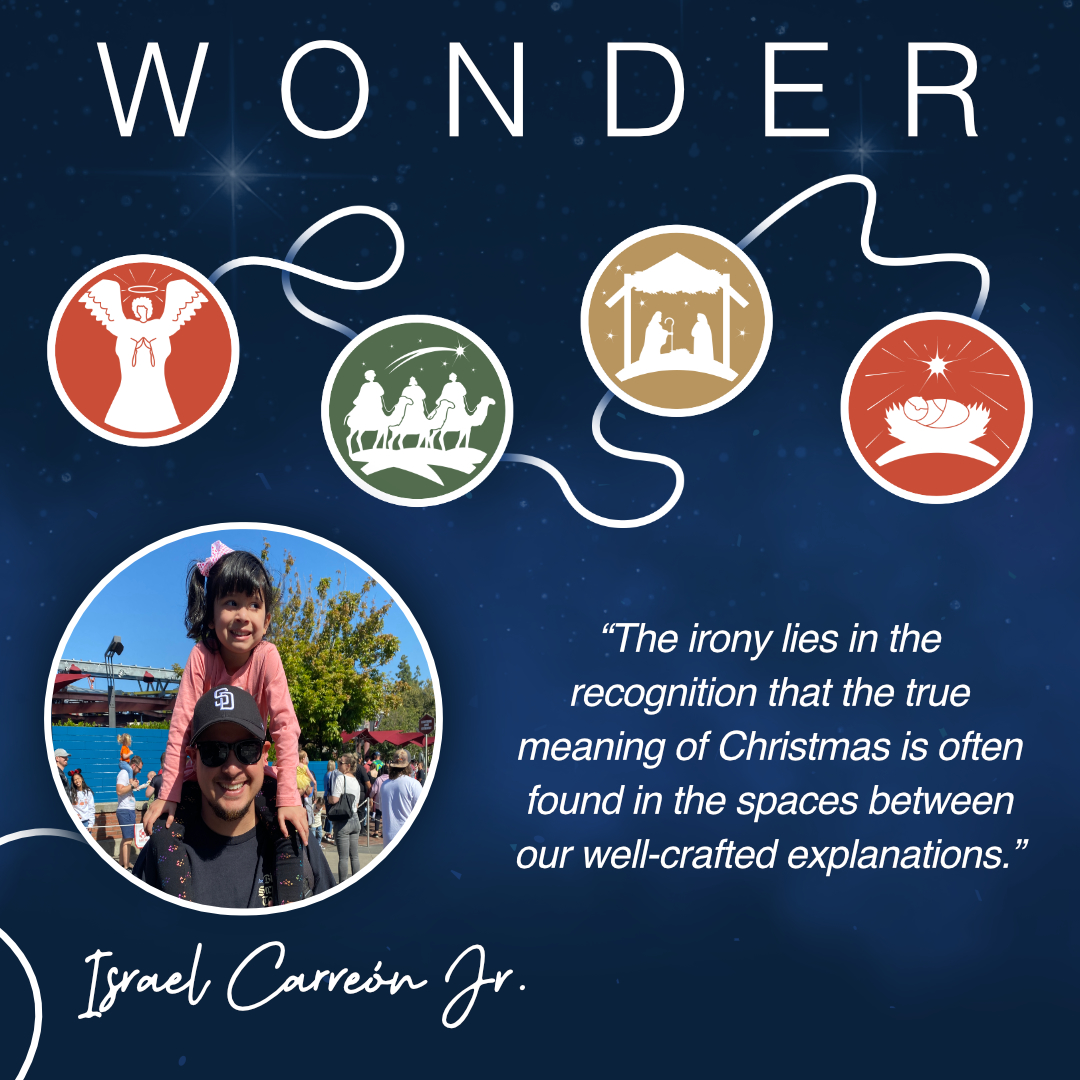There are probably many personal Christmas narratives that stand as a testament to the complexities of imparting wisdom and the elusive nature of understanding the true meaning of the season. But I’m a dad now. Like most conversations, they are hijacked to discuss my children. There’s a particular Yuletide recollection that echoes with both laughter and a sense of profound irony.
It was a time when my eldest daughter–she’s four–had just begun to grasp the concept of Christmas beyond the twinkling lights and the allure of brightly wrapped gifts. A man of words (or trying to be), I endeavored to teach her the essence of the season – to move beyond the material trappings and delve into the deeper currents of love, compassion, and the symbolic birth in Bethlehem.
Our living room, adorned with a kaleidoscope of holiday decorations, served as the backdrop for my well-intentioned lesson. In the glow of the Christmas tree lights, I sat with my daughter, eager to impart the profound truths that had resonated through generations. I envisioned a heartwarming moment, a passing of wisdom that would become a cherished part of our family lore.
But, as any parent can attest, the best-laid plans often unravel in the unpredictability of parenthood. My earnest attempts at elucidating the significance of the nativity story were met with a gaze that oscillated between fascination and distraction. The allure of the shiny ornaments and the anticipation of gifts lurking beneath the tree proved formidable opponents in my quest for theological clarity.
This Christmas memory unfolds as a story of both humility and understanding. It is a reflection on the inherent challenge of transmitting the profundity of tradition to a young mind eager to unwrap the mysteries of the world and her gifts.
The irony of the situation did not escape me – a former English teacher-now-reporter grappling with the inadequacy of words to encapsulate the mystery of Jesus’ birth. As the nativity narrative unfolded, my daughter’s attention waned, her eyes wandering to the glittering ornaments and the promise of presents.
“Dad, can I watch SuperKitties on Disney+?” The moment is gone. Did my lesson connect? Maybe? Maybe.
It was a moment that spoke volumes about the inherent tension between the tangible and the transcendent, the visible and the invisible.
How has this experience shaped my sense of wonder about who Jesus is? In the aftermath of that failed lesson, a profound realization dawned. Jesus, much like the lessons we seek to impart, transcends the confines of words and explanations. His narrative is written in the quiet moments of compassion, the shared laughter of family, and the unspoken bonds that bind us together.
The irony lies in the recognition that the true meaning of Christmas is often found in the spaces between our well-crafted explanations. Jesus, in his humility, was born in a manger, not a grand cathedral. Similarly, the profound truths of the season may elude us in our grand gestures, manifesting instead in the simplicity of a child’s laughter or the warmth of familial embrace.
As I navigate the corridors of my role as a father, this Christmas memory serves as a poignant reminder of the limitations of language in conveying the ineffable. Wonder, it seems, thrives in the gaps between our words, in the unscripted moments where the magic of the season reveals itself.
In the grand tapestry of life, that Christmas lesson, or lack thereof, became a thread woven into the fabric of our family narrative. It taught me to embrace the mystery, to recognize that the true meaning of Christmas is often found in the unspoken, the experiential, and the enduring love that binds us together. The lesson, it appears, was not for my daughter alone but for me—a humbling revelation that wonders are not always found in what we teach but in what we discover together.
Israel Carreón Jr. is a husband and papa bear who searches for beauty in words.
